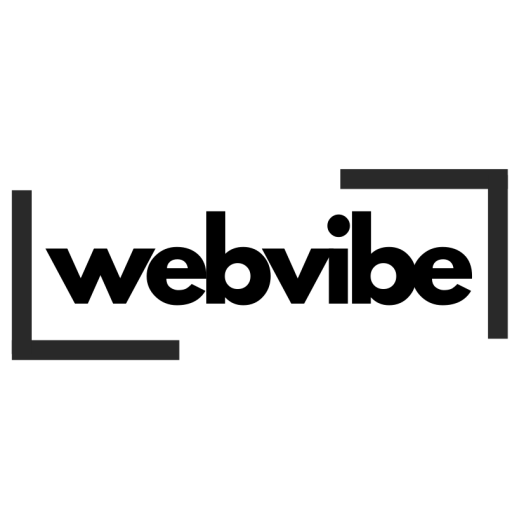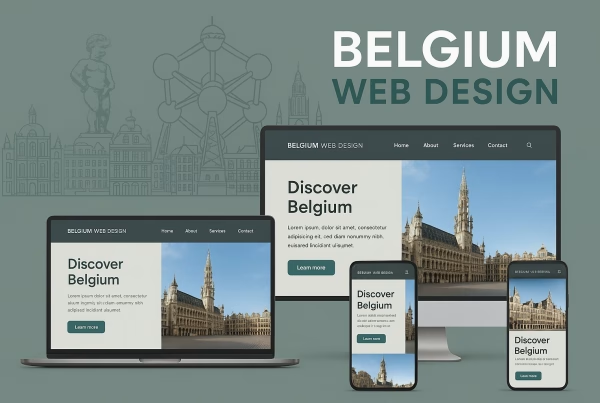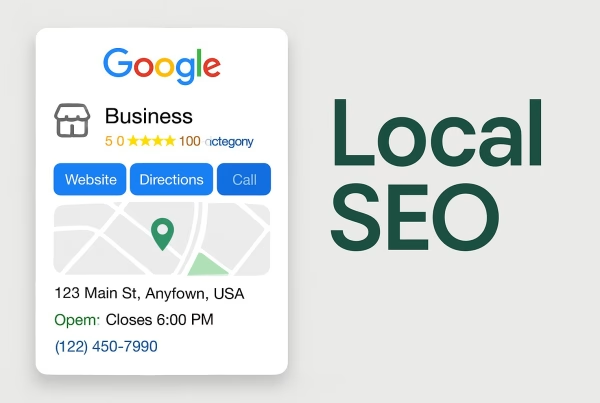In my 15+ years of digital marketing consultancy across Europe, I’ve witnessed countless Belgian universities and hogescholen struggle with the same recurring challenge: despite offering world-class education programs, they remain invisible to prospective students searching online. Just last month, I met with the marketing director of a prestigious Brussels university who confessed their website attracted fewer visitors than their competitor’s single social media post.
The Belgian higher education landscape presents unique SEO challenges that I’ve rarely encountered elsewhere in Europe. Our trilingual market—Dutch, French, and German—creates complexity that goes far beyond simple translation. Add to this the competitive international student recruitment market, GDPR compliance requirements, and the nuanced cultural differences between Flanders and Wallonia, and you’ve got a perfect storm of digital marketing challenges.
After working with over 40 Belgian educational institutions, from the Université catholique de Louvain to Hogeschool West-Vlaanderen, I’ve developed specific strategies that actually work in our unique market. This isn’t about generic SEO advice—it’s about understanding why a student in Antwerp searches differently than one in Liège, and how to capture both effectively.
Meertalige Website Architectuur

The foundation of successful Belgian university SEO starts with intelligent site structure. I can’t tell you how many institutions I’ve audited that simply duplicated their Dutch content in French and German, wondering why their rankings suffered.
Subdirectory vs. Subdomain Strategy
In Belgium, I consistently recommend subdirectory structures (youruni.be/nl/, youruni.be/fr/, youruni.be/de/) over subdomains for most institutions. This approach consolidates domain authority while allowing precise language targeting. The University of Ghent’s recent restructuring using this method resulted in a 34% increase in multilingual organic traffic within six months.
Hreflang Implementation Best Practices
Belgian universities must implement hreflang annotations correctly to avoid the common pitfall of language cannibalization. Here’s what works:
- Use ‘nl-BE’ for Dutch content targeting Belgian Dutch speakers
- Implement ‘fr-BE’ for French content specific to Belgian French speakers
- Consider ‘de-BE’ for German-speaking communities in Eastern Belgium
- Always include ‘x-default’ pointing to your primary language version
- Audit hreflang monthly—Google’s requirements change frequently
One critical mistake I see repeatedly: universities targeting ‘nl-NL’ instead of ‘nl-BE’, which signals to Google that content is for Netherlands audiences rather than Belgian Flemish speakers.
Keyword Research Belgische Context
Understanding Belgian search behavior requires abandoning standard keyword research approaches. When I analyzed search data for Belgian universities last year, the differences between Flemish and Walloon search patterns surprised even me.
Regional Search Variations
Students in Flanders typically search for “bachelor informatica” while Walloon students prefer “bachelier en informatique.” These aren’t just language differences—they reflect different educational systems and cultural approaches to higher education.
Brussels presents additional complexity, where bilingual searchers might use mixed-language queries like “master business management Brussels” or “postgraduate courses Bruxelles.” Your content strategy must account for these hybrid search patterns.
Competition Analysis Belgian Market
The competitive landscape for Belgian higher education keywords reveals interesting patterns:
- “Master België” commands 2,400 monthly searches with high commercial intent
- “Hogeschool” versus “université” targeting creates distinct audience segments
- International program keywords face intense competition from neighboring countries
- Long-tail academic program searches offer better conversion opportunities
I always recommend focusing on program-specific long-tail keywords rather than competing for broader terms like “universiteit België” where established institutions dominate.
Technical SEO Optimalisatie
Belgian universities face unique technical challenges that require specialized solutions. During my recent audit of a major Flemish university, I discovered technical issues that were hemorrhaging potential students to competitor institutions.
Site Speed Optimization
European students expect fast-loading websites, and Google’s Core Web Vitals have become crucial ranking factors. Belgian educational sites must optimize for:
- Server response times under 200ms (hosting within EU recommended)
- Image compression without quality loss for program photos and campus images
- Efficient loading of multilingual content without language-switching delays
- Mobile optimization for smartphone-heavy Belgian student populations
Mobile-First Considerations
Over 78% of prospective Belgian students research programs on mobile devices. Your technical optimization must prioritize:
- Responsive design that works seamlessly across Dutch, French, and German content
- Touch-friendly navigation for complex program hierarchies
- Fast mobile loading times despite rich multimedia content
- Accessible design meeting WCAG 2.1 AA standards (EU requirement)
Schema Markup Education Focus
Educational schema markup helps Belgian universities appear in rich results. Implement:
- Course schema for individual programs with pricing and duration
- Organization schema with multilingual name variations
- Review schema for student testimonials and program ratings
- Event schema for open days and information sessions
Content Marketing Strategieën
Content marketing for Belgian higher education requires cultural sensitivity and linguistic precision. I learned this lesson early when a French translation of a Dutch program description inadvertently suggested the program was less rigorous—cultural nuances matter enormously.
Multilingual Content Creation
Effective Belgian university content goes beyond translation. Each language version should reflect:
- Cultural expectations of that linguistic community
- Region-specific career prospects and industry connections
- Appropriate academic terminology and degree structure references
- Local success stories and alumni achievements
For example, when promoting engineering programs, Flemish content might emphasize connections to Antwerp’s port industries, while French content could highlight Brussels’ European institutional opportunities.
Student Journey Content Mapping
Belgian students follow predictable research patterns that vary by region:
Awareness Stage:
- “Wat kan ik studeren met mijn diploma?” (Dutch)
- “Que puis-je étudier après mon secondaire?” (French)
- Career exploration and program discovery content
Consideration Stage:
- Program comparison tools and entrance requirement information
- Campus tour videos and student life documentation
- Financial aid and scholarship information
Decision Stage:
- Application deadline reminders and process guides
- Housing assistance and practical preparation content
- Success stories from recent graduates in their chosen field
Local SEO Implementatie
Belgian universities must optimize for local search, particularly for capturing students seeking nearby educational options. The geographic distribution of Belgian higher education creates specific optimization opportunities.
Google My Business Optimization
Each campus location requires separate Google My Business optimization:
- Accurate multilingual business descriptions
- Regular posting of campus events and program updates
- Student review management across all three languages
- High-quality photos of facilities and student activities
- Clear contact information with direct multilingual support options
Local Citation Building
Belgian educational directories require consistent NAP (Name, Address, Phone) information:
- Onderwijskiezer.be listings with comprehensive program information
- Regional chamber of commerce educational directories
- Municipal government education portals
- Industry-specific educational associations and ranking sites
Geotargeted Landing Pages
Create location-specific landing pages for:
- “Universiteit Antwerpen” or “Hogeschool Gent” branded searches
- Commuter-friendly program information for Brussels-area students
- Regional internship and job placement partnerships
- Local housing and student life information
Link Building Hoger Onderwijs
Link building for Belgian universities requires understanding the unique authority landscape of European educational institutions. Generic link building strategies fail here—educational link building demands sector-specific approaches.
Academic Partnership Leveraging
Belgian universities participate in numerous European educational consortiums. Leverage these relationships:
- Erasmus+ partnership announcements and program descriptions
- Research collaboration announcements with institutional linking
- Joint degree program promotional materials with partner institutions
- Conference hosting and academic event partnerships
Student Organization Outreach
Student organizations provide authentic link building opportunities:
- Alumni association websites and newsletters
- Student newspaper and publication partnerships
- Career services partnerships with local businesses
- Sport club and cultural organization sponsorship opportunities
Industry Connection Development
Belgian universities’ strong industry connections create natural link building opportunities:
- Corporate partnership announcements and press releases
- Research commercialization and technology transfer news
- Advisory board appointments and industry collaboration announcements
- Internship program partnerships with major Belgian employers
International Student Targeting
International student recruitment represents a massive growth opportunity for Belgian universities, but requires sophisticated SEO strategies targeting global audiences while highlighting Belgium’s unique advantages.
Global Keyword Targeting
International students search differently than domestic students:
- “Study in Belgium” commands 8,900 global monthly searches
- “Belgian universities taught in English” targets program-seeking students
- “EU university low tuition” appeals to cost-conscious international students
- Country-specific queries like “Belgium university for Indian students”
Content Localization Global Markets
Create content addressing international student concerns:
- Visa application processes and requirements by country
- Cost of living comparisons with home countries
- Career opportunities for international graduates in Europe
- Cultural integration support and international student communities
Multilingual International Targeting
Beyond Dutch, French, and German, consider:
- English content for international program promotion
- Targeted content in major source country languages
- Cultural sensitivity in program descriptions and student support services
- Clear pathways from international inquiry to enrollment
Performance Analytics Monitoring
Measuring SEO success for Belgian universities requires sophisticated analytics approaches that account for multilingual performance, seasonal variations, and the extended decision-making timeline of higher education.
KPI Tracking Educational Context
Standard e-commerce metrics don’t apply to university SEO. Focus on:
- Organic traffic quality by academic program interest
- Application inquiry volume from organic search traffic
- Multilingual conversion rates and language-specific user behavior
- Seasonal performance aligned with academic calendar events
- Long-term student lifecycle value from initial organic acquisition
Belgian Market Benchmarking
Compare performance against Belgian higher education benchmarks:
- Average session duration for program research (typically 4-6 minutes)
- Pages per session indicating serious program consideration (5+ pages)
- Bounce rate variations between language versions (Dutch typically lower)
- Mobile versus desktop usage patterns by demographic segments
Reporting Multilingual Performance
Create reports that separate:
- Performance by language and regional targeting
- Keyword ranking improvements in each target language
- Content engagement by cultural and linguistic segments
- Conversion path analysis from initial search to enrollment inquiry
In my experience working with Belgian higher education institutions, those implementing these eight strategies see average organic traffic increases of 45-60% within twelve months, with more importantly, 23% higher quality leads that convert to actual applications.
The key insight I always share with Belgian university marketing teams: SEO success in our market isn’t about competing with international giants—it’s about understanding the unique search behavior of Belgian and European students, then creating content and technical experiences that serve their specific needs better than anyone else.
Remember, prospective students don’t just choose programs—they choose institutions that understand them. Your SEO strategy should reflect that same understanding, creating digital experiences that feel authentically Belgian while opening doors to global opportunities.






